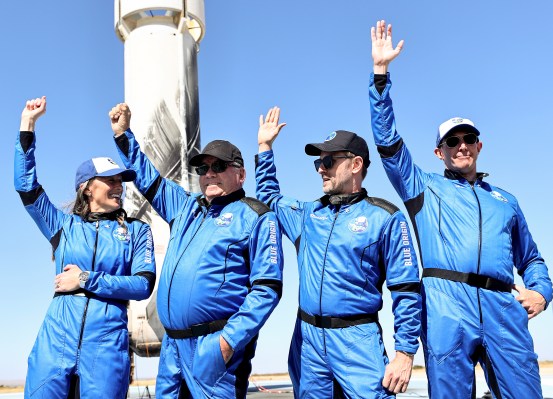The Federal Aviation Administration is launching a new initiative exploring possible regulations on commercial human spaceflight, a first for a nascent industry that is rapidly increasing the number of humans that visit space.
The new rulemaking committee will “help the FAA plan, conceive, and implement—when the time is right—a well-informed, thoughtful, regulatory regime for commercial human spaceflight occupant safety,” the FAA said in a statement.
The committee will gather recommendations from major stakeholders, which will no doubt include companies that operate human spaceflight services, including Blue Origin, Virgin Galactic and SpaceX, and submit them to the FAA next summer.
While the committee is a step toward regulations, the FAA does not have any rulemaking authority over this aspect of human spaceflight in itself. Indeed, while the FAA has authority over launch as it relates to the safety of people on the ground, it is prohibited by federal law from regulating occupant safety on board launch vehicles, save in the case of death or serious injury. Instead, the FAA simply requires that crewmembers be made aware of the risks and hazards of spaceflight and sign an extensive “informed consent” form.
For the FAA’s authority to change, Congress would need to act — and it appears that they might, and soon. Lawmakers placed a moratorium on commercial human spaceflight regulations in 2004, with the idea being that regulations could kneecap an industry that was only barely getting on its feet. Congress has extended that moratorium, sometimes called a “learning period,” twice — but unless they extend it again, it is set to expire this October.
Some think the moratorium should be further extended. At a recent House Science Committee Hearing, Karina Drees, president of the industry group Commercial Spaceflight Federation, told lawmakers that establishing regulations now would be premature.
“[The] FAA does not yet have the expertise, resources or plan needed to implement a revised occupant safety regulatory framework,” she said. “Allowing the learning period to end this year would open the door to regulations that inadvertently freeze development before industry has had time to mature, harming safety in the long-term and our nation’s competitiveness.”
On the other side of the issue, a report issued earlier this year by the RAND Corporation suggested that it was time for the moratorium to expire, even if the commercial human spaceflight industry was still in the early stages. One reason the researchers gave is that commercial spaceflight companies are not required to share safety data publicly, so there’s a real lack of transparency regarding incidents and anomalies, and no real way for companies to learn from each other.
“The current practice of nondisclosure and siloing of data and information may result in gaps or blind spots that could increase the likelihood of a catastrophic event,” RAND researchers Douglas Ligor and Josh Becker said.
